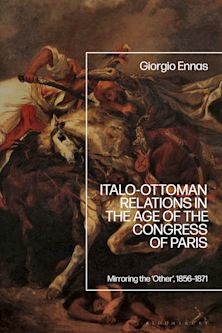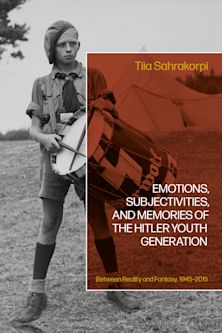- Home
- ACADEMIC
- History
- European History
- German and Austrian-German Historical Thought in the Modern Era
German and Austrian-German Historical Thought in the Modern Era
German and Austrian-German Historical Thought in the Modern Era
This product is usually dispatched within 1 week
- Delivery and returns info
-
Free CA delivery on orders $40 or over
You must sign in to add this item to your wishlist. Please sign in or create an account
Description
Every nation develops a narrative structure for thinking about history that is generated by its own historical experience. In this study, the German and Austrian-German “historias”—the way narratives of factual significance are structured as the “story” of events—are shown in their sameness from the late 1600s to the present. This “historia” shapes the emphasis of how meaning is articulated among the historians of a society. The author argues that German and Austrian-German societies would benefit from understanding the constrictions and oversights generated by the narrative style of their traditional historias.
Table of Contents
Chapter 1: German Historical Thought in the Early Enlightenment
Chapter 2: Austrian-German Historical Thought in the Early Enlightenment
Chapter 3: German Historical Thought from the Mid- Enlightenment through the Late Enlightenment
Chapter 4: Austrian-German Historical Thought from the Mid-Enlightenment through the Napoleonic Years
Chapter 5: German Historical Thought from 1815-1870
Chapter 6: Austrian-German Historical Thought from 1815-1870
Chapter 7: German Historical Thought from the 1870s into World War I
Chapter 8: Austrian-German Historical Thought from the 1870s into World War I
Chapter 9: The German Historical Narrative in the Early Twentieth Century:“Bad Faith” and Its Overcoming
Chapter 10: Austrian-German Historical Thought Between World War I and World War II
Chapter 11: German Historical Thought from 1946 through the Present
Chapter 12: Austrian-German Historical Thought from 1946 through the Present
Product details
| Published | Dec 12 2019 |
|---|---|
| Format | Hardback |
| Edition | 1st |
| Extent | 348 |
| ISBN | 9781498595223 |
| Imprint | Lexington Books |
| Dimensions | 228 x 159 mm |
| Publisher | Bloomsbury Publishing |
About the contributors
Reviews
-
This study is a significant demonstration of the importance of historia and the narrative construction of historical identity in the distinct German and Austrian-German cultures. The scope of the research, the depth of analysis, and the rigor of the argument all reflect Mark Blum's experience as an intellectual historian. It is hard to think of another scholar with the sympathy and imagination to do this work. Blum writes as if he knew these historians, writers, and philosophers personally.
Steven T. Ostovich, The College of St. Scholastica

ONLINE RESOURCES
Bloomsbury Collections
This book is available on Bloomsbury Collections where your library has access.




























